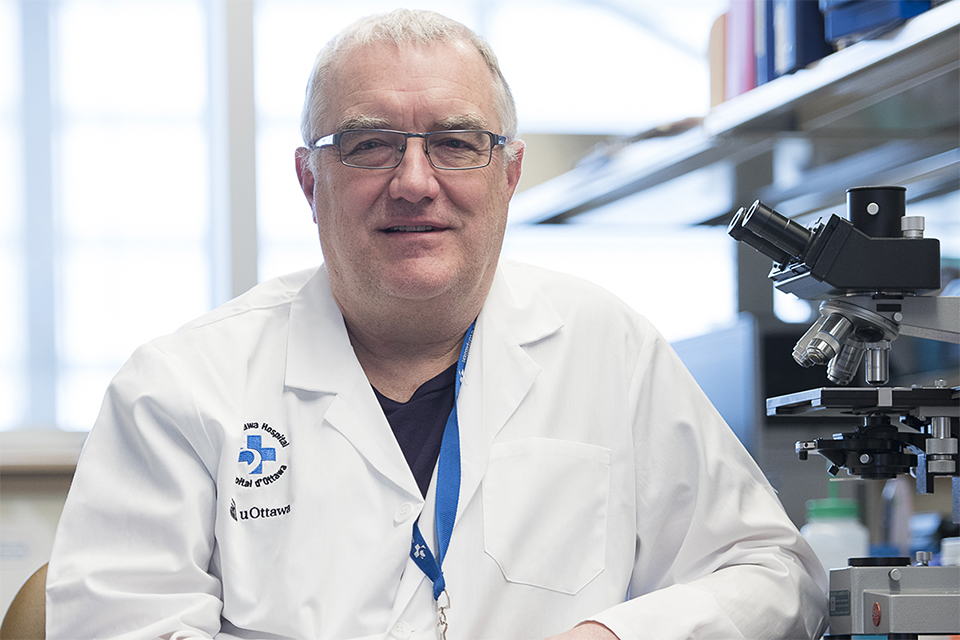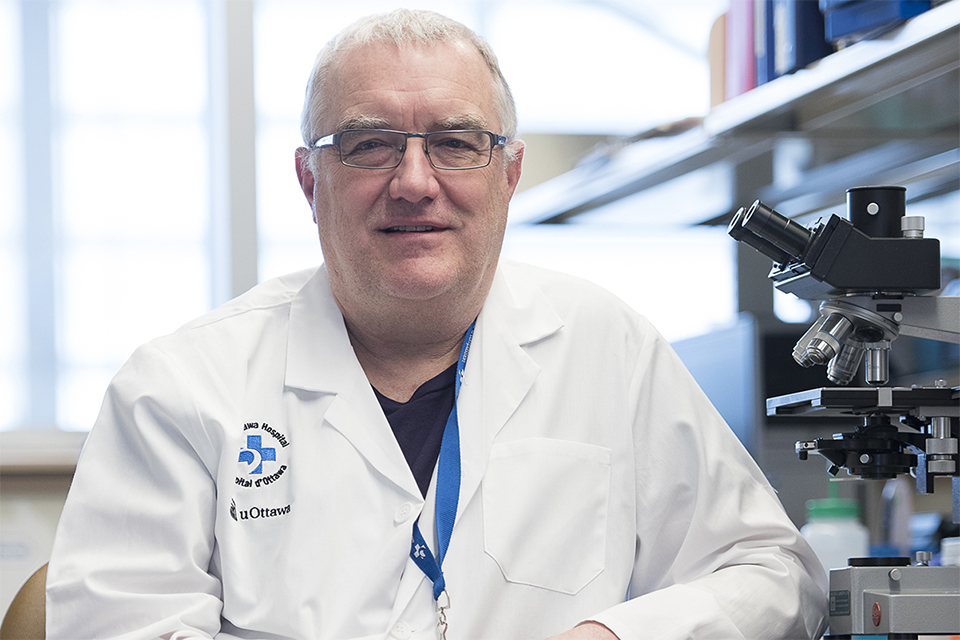
As the COVID-19 virus continues to spread around the world, a vaccine developed and manufactured at The Ottawa Hospital could provide a unique approach to help control the pandemic. Unlike the COVID-19 vaccines currently approved by the World Health Organization, this new vaccine, dubbed TOH-Vac1, replicates inside the body’s cells.
New results published in Molecular Therapy show that a single dose of TOH-Vac1 generates a powerful, multi-pronged immune response in mice and monkeys. It is also safe, inexpensive, easy to manufacture, store and transport, and can be programmed to protect against multiple variants.
“We need to harness every tool we have to control this pandemic, including new vaccines with unique advantages,” said Dr. Carolina Ilkow, senior scientist at The Ottawa Hospital, assistant professor at the University of Ottawa and co-senior author of the study.
New COVID-19 vaccine is based on vaccine for smallpox
TOH-Vac1 is based on a strain of vaccinia virus that was safely used to vaccinate millions of people against smallpox in the 1950s. The strain has been genetically engineered to produce the spike protein of SARS-CoV2.
“Because this vaccine is based on a replicating virus, it generates a very strong immune response, which includes T cells as well as antibodies,” explained Dr. John Bell, senior scientist at The Ottawa Hospital, professor at the University of Ottawa and co-senior author of the study. “We think this is important for the development of a broader, longer-lasting immune response. It also makes the vaccine relatively easy to manufacture.”
Researchers harnessing expertise on cancer-fighting viruses
The idea to develop TOH-Vac1 came from a group of postdoctoral fellows, graduate students and research technicians working with Dr. Bell and Dr. Ilkow in The Ottawa Hospital’s Cancer Centre. The team normally focuses on developing viruses to fight cancer, but when the pandemic hit, they realized they could quickly adapt their research to develop a vaccine against COVID-19. They also knew they could manufacture large quantities of the vaccine in The Ottawa Hospital’s Biotherapeutics Manufacturing Centre – the only facility of its kind in the country.
“When the pandemic hit, everyone wanted to help. This is why we get into science,” said postdoctoral fellow Dr. Stephen Boulton. “Our team grew to include many researchers with different areas of expertise, and this helped us develop a really strong vaccine. It has been an amazing collaboration.”
Partners needed to move into human clinical trials
The research was initially funded through a Fast Grant in partnership with the Thistledown Foundation and a COVID-19 Emergency Response Fund grant from The Ottawa Hospital Foundation. The team then received additional funding through the Canadian Institutes of Health Research COVID-19 Rapid Research Funding Opportunity. The Canada Foundation for Innovation also provided infrastructure support for the biomanufacturing.
While this funding has run out, the team hopes that government or other partners will step up and help move the research into human clinical trials.
“We’re very fortunate that we have good access to safe and effective vaccines in Canada, but this pandemic isn’t over,” said Dr. Bell. “We need to vaccinate the whole world, and we need to be prepared to manufacture vaccines against new variants, should the need arise.”
The research team is not patenting their vaccine and is prepared to manufacture it at-cost, or provide samples so that others can manufacture it. They note that in addition to providing immunity to COVID-19, TOH-Vac1 would also provide immunity to smallpox.
Researchers at the Institut du Cancer de Montréal, the Arnie Charbonneau Cancer Institute, the Alberta Children's Hospital Research Institute and the University of Alberta also contributed to the research, including Réjean Lapointe of the University of Montreal and CHUM.
Full reference: Single-dose replicating poxvirus vector-based RBD vaccine drives robust humoral and T cell immune response against SARS-CoV-2 infection. Molecular Therapy. Available online 20 October 2021. Boulton S*, Poutou J*, Martin NT*, Azad T*, Singaravelu R*, Crupi MJF*, Jamieson T*, He X, Marius R, Petryk J, Tanese de Souza C, Austin B, Taha Z, Whelan J, Khan ST, Pelin A, Rezaei R, Surendran A, Tucker S, Brown EEF, Dave J, Diallo JS, Auer R, Angel JB, Cameron DW, Cailhier JF, Lapointe R, Potts K, Mahoney DJ, Bell JC**, Ilkow CS**. * Contributed equally. ** Co-senior authors. https://www.ncbi.nlm.nih.gov/pmc/articles/PMC8527104/.
For media requests:
Paul Logothetis
Media Relations Agent
Cell: 613.863.7221
[email protected]
